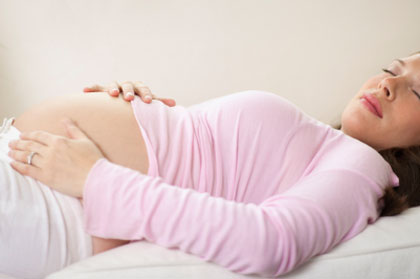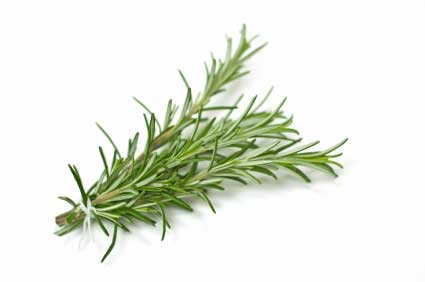Morning sickness is also known as nausea gravidarum, nausea, vomiting of pregnancy (emesis gravidarum), or pregnancy sickness.
At times, morning sickness can be mild. However, the pregnant mother may at other times feel so nauseous that she will vomit.
Even though morning sickness can be extremely unpleasant, it is hardly ever severe enough to cause metabolic derangement. In most cases, morning sickness settles down by the end of the first trimester.
Morning sickness is more likely to occur during the first three months of a pregnancy.
Here are a few tips you can put in to practice to minimize unpleasant morning sickness symptoms:
- Get plenty of rest.
You must ensure you get a good night´s sleep - wear a sleep mask, or even dark glasses, to block out as much light as possible. You might also consider a maternity body pillow that will properly help you support your back and stomach.
Sometimes taking naps during the day may help.
Avoid moving around straight after eating.

- Get up slowly
Don't be in a hurry to get out of bed when you wake up. Take your time. - Avoid some types of foods
Avoid fatty and/or spicy foods. Avoid caffeine as well. - Food portion sizes - have small ones.
It is important to always have some kind of food in your stomach, as this will lower your chances of experiencing nausea - and if you do, most likely symptoms will be milder. If the stomach is empty, the acids have nothing to workon, except for the stomach lining, resulting in worsening nausea.
Have some salty crackers, peanut butter snacks, or some other protein snack before you get out of bed in the morning.
At breakfast, cold apple sauce, pears, bananas or any citrus fruit will help you feel satisfied early. Baked potatoes, although, less tasty for many, are highly nutritious. The fruit's potassium may help prevent morning sickness. At night, try eating something high in protein snack/meal before going to bed, as this will help regulate your blood-glucose levels.

- Computer monitor flicker.
The rapid, almost unnoticeable flickering of the computer monitor could cause morning sickness. If you are susceptible to morning sickness due to monitor flicker, try to avoid using a computer completely. If you must, you should adjust the screen by making the fonts bold and larger and changing the background to a soft tan or pink color - this will help reduce eye strain. - Physical activity.
Some mothers may find it hard to move around if they feel lousy. However, being physically active has been found to improve symptoms in many people. - Fluid intake.
Being hydrated is crucial for good health, and very important during pregnancy. Some mothers with morning sickness may not feel like consuming their recommended eight glasses of water per day, especially if their stomachs seem not to let them. However, the more dehydrated you are, the more nauseated you will become.
If drinking water is hard, try adding apple cider vinegar and honey. Some mothers say flat Sprite helps, or decaffeinated cola. Sucking ice cubes made from water or fruit juice is also an effective method. The colder the drink, the easier it is to consume. - Ginger.
For many years, ginger has long been publicized as a stomach soother, and studies have shown that it may help relieve nausea symptoms. Sipping cold ginger ale, or adding a slice of raw ginger to water or tea may help sooth your stomach.
Snacks such as gingerbread, or ginger cookies will all effectively help prevent nausea.

- Keep your mind occupied.
It is important to try to take your mind off the nauseous feelings. Finding things to do might not be easy. Reading a book, doing puzzles, watching television, playing cards, or going for short walks around the block will clear your mind and relax you. However, you must also listen to your body, and stop whenever necessary. - Wear loose and comfortable clothing.
Restrictive or tight clothing may exacerbate the symptoms of morning sickness. Studies have found that pregnant mothers with nausea who switched from tight to loose-fitting clothing reported either reduced symptoms or non at all. - Consider using children's vitamins instead of regular pre-natal vitamins.
Children's vitamins are usually easier to digest. - Sniff fresh scents.
Morning sickness is very much smell-associated - the pregnant mother becomes more sensitive to odors. Certain ugly smells, smells you cannot get away from, and potent smells such as perfumes can trigger an episode of unpleasant nausea. The most effective scents, according to self-reports, are lemon extract and/or rosemary.

Fresh rosemary is a very effective scent for morning sickness - Triggers
There are several triggers that can bring on an episode of nausea and a general feeling of being unwell due to morning sickness. Most people will soon identify what they are. Avoid them as much as you can, and your frequency of nausea and/or vomiting will reduce, as will severity of symptoms. - Acid reflux
Sometimes, the náusea and vomiting may be due to acid reflux. Taking antacid medication before going to bed may help reduce stomach acid levels, and the subsequent morning vomiting. Check with your doctor before buying any medication during pregnancy. - Iron pills or iron-containing multivitamins
Some pregnant women may become nauseous because of the iron supplements they have been told to take. Talk to your doctor and ask him/her to recommend a slower-release form, or even possible a lower dosage. - Acupressure
Applying pressure on specific points on the body to control symptoms has been shown to help some women with morning sickness. In this case, it involves wearing a special band on your forearm.
About 1 in every 300 pregnant women develop hyperemesis gravidarum. The condition does not usually persist beyond the 20th week of pregnancy. The doctor may recommend dietary changes, plenty of rest and the use of antacids. In severe cases the patient may need to receive fluids and nutrition intravenously.
Source: http://www.medicalnewstoday.com/articles/37757.php

